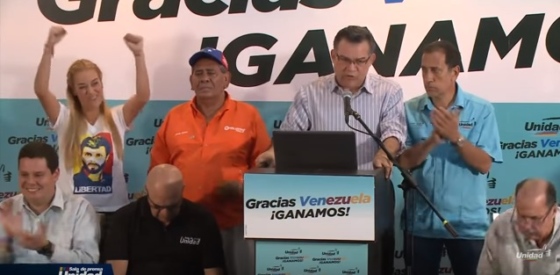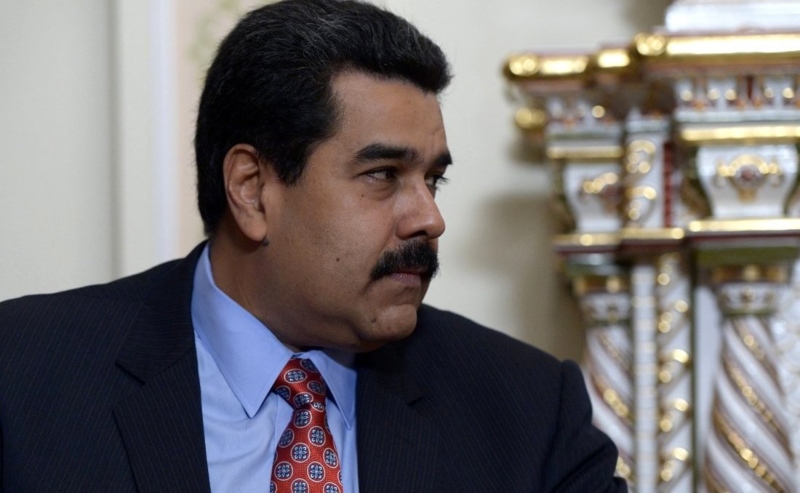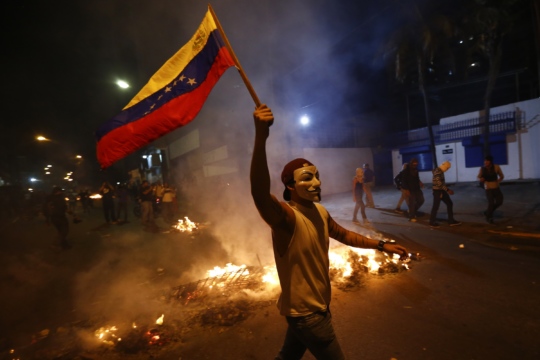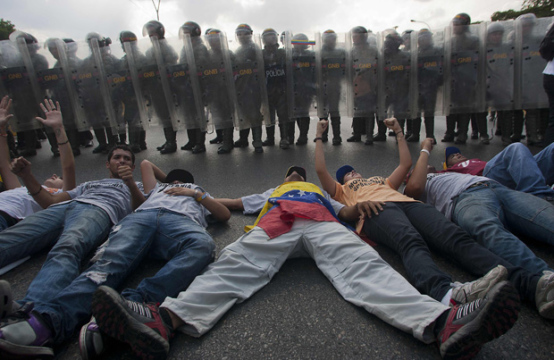
What Does the Future Hold for Venezuela?
What do the election results mean for President Nicolás Maduro and his grip on the presidency?
On May 14, 2020, Michael Camilleri, director of the Peter D. Bell Rule of Law Program at the Inter-American Dialogue, discussed the failed coup attempt in Venezuela and its implications for both Maduro's hold on power and US policy with the International Crisis Group's Ivan Briscoe, and Brian Hanson, host of Deep Dish, a podcast by The Chicago Council on Global Affairs.
"Venezuela was already a country in intensive care, suffering from a contraction of about two-thirds of its economy...inflation rates that are currently in the four digits, widespread shortages of food that have left a third of the population hungry...and this mass exodus of some five million Venezuelans that represents the second biggest displacement crisis in the world after Syria. This is coupled with an institutional and democratic decay and decline over the course of 20 plus years since Hugo Chávez came to power, but which has accelerated under Nicolás Maduro. Life in Venezuela is fragile, precarious, and often brutal, including high levels of common violence as well as political violence. That preexisting crisis is now exacerbated by the pandemic and the collapse in global oil prices, which has reduced Venezuela's already struggling oil industry, the life blood of its economy, to tatters."
"There [were] contradictions in US policy [towards Venezuela]...in late March and early April. One was the indictment of Maduro and other top officials on narcoterrorism charges. The second was this naval mobilization in the Caribbean that was meant to send a message. And the third was the announcement by Secretary of State Pompeo of the "Democratic Transition Framework," which actually was more of a conciliatory move. It was the first time that the United States had embraced an attempted negotiated political transition to an interim government, or at least a transition unity government in Venezuela that would convene new elections and that would not include Maduro, [or] the opposition leader Juan Guaidó who the United States recognizes as interim president. So you had these three consequential moves happen in quick succession but seemingly pulling in different directions...Of course, [they] worked in contradiction of one another. Maduro was very quick to reject the idea of this transition framework, and in light of the failed mercenary incursion about a week ago, it seems very unlikely that you are going to see any move towards political negotiations. Maduro will very likely look to double down on his persecution of the opposition and dig his heels in."
"The administration has said that if [the failed coup] had been a US operation it would have been much more effective. At the very least, these soldiers would have had enough to eat as they trained for this incursion. I don't think we've seen any evidence...that this was directed or coordinated by the US government. It's very likely the US government [was] aware of [the incursion]. One of the kind of farcical characteristics of this whole episode is that it actually leaked to the Associated Press a couple of days before the attack took place. You would think that would have been the end of it but these guys went ahead anyway and tried to invade Venezuela. So if the Associated Press was reporting on this, and apparently the operation was deeply infiltrated by the Venezuelan intelligence, then it seems quite likely the US and Colombian governments were also aware that it was happening."
What do the election results mean for President Nicolás Maduro and his grip on the presidency?
An economic and humanitarian crisis, precipitated by the Maduro regime, has brought Venezuela to the brink of collapse.
En una entrevista con BBC Mundo poco después de que Trump dijera este viernes que su gobierno maneja varias opciones respecto a la crisis en Venezuela, “incluida la opción militar si es necesaria”, Shifter sostuvo que esto podría servir como “un regalo” para Maduro.
 www.kremlin.ru CC by 4.0
www.kremlin.ru CC by 4.0

